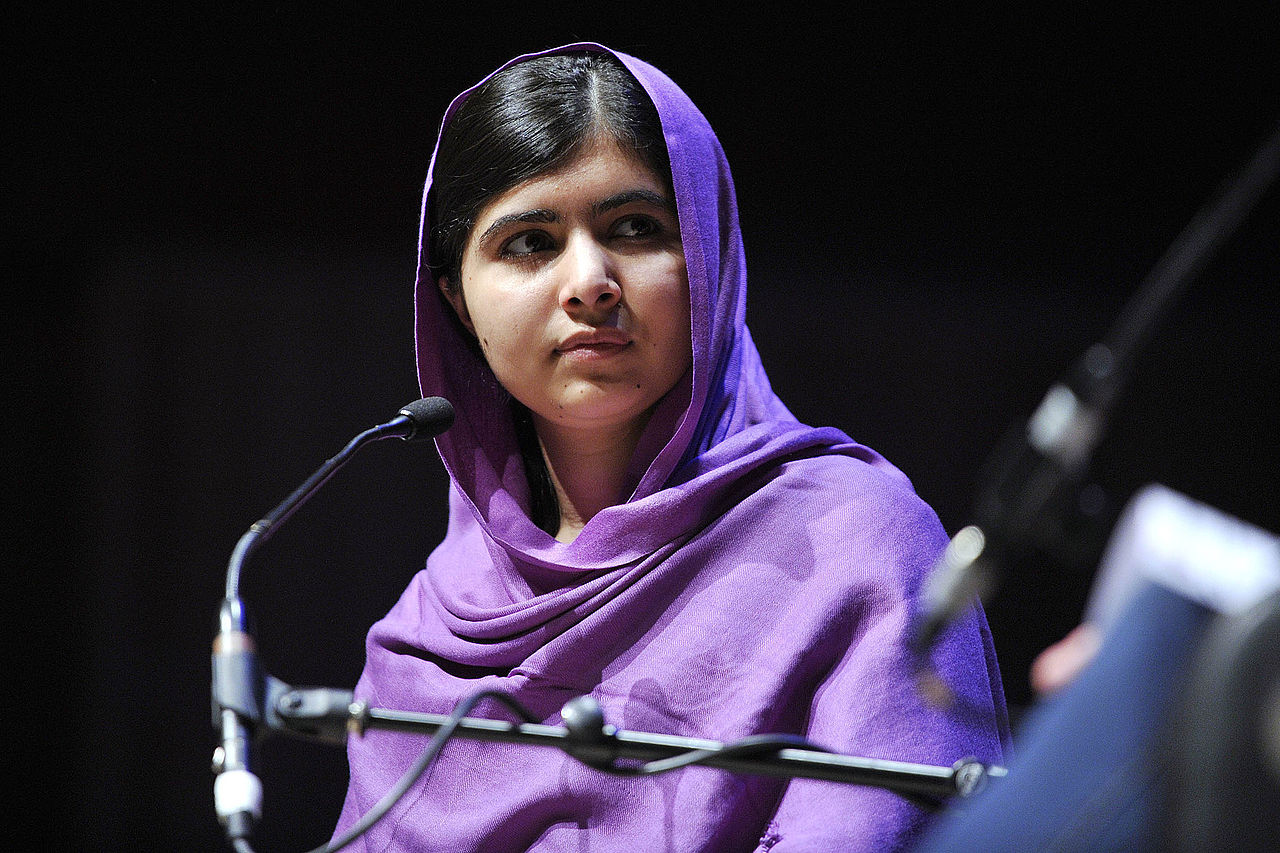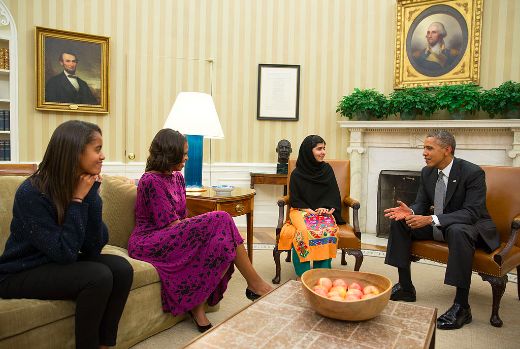
Right about now, high school seniors that wish to attend U.S. Universities are scrambling to complete their college applications before the December or January deadlines. Among the things they will be required to submit is a Scholastic Aptitude Test or SAT score. While the standardized test is an optional requirement for some schools, at California's Stanford University it is mandatory for every applicant - Even the world's youngest Nobel Prize winner, Malala Yousafzai!
The 18-year-old that is currently completing high school in Birmingham, England, has always expressed her desire to attend the U.S. school that has the reputation for being one of the world's best. But though Malala, who has spent her life advocating for girls' rights to education, has a résumé that probably rivals that of the 42,000 kids that apply for the 2,000 spots each year, it is not enough. Stanford University still requires her to take the SAT just like all the other candidates.
The news has many of her fans up in arms. Some are upset because they believe Malala's achievements are enough to prove she is a worthy candidate. Others think it just shows how much emphasis U.S. Universities place on standardized tests.

But not everyone agrees with the critics. Some feel that Malala, special as she, should not be given preferential treatment. Besides they argue, if the results of her GCSE's, the British equivalent of the SATs are any indication, the young girl will have no issues passing the U.S. test with flying colors.
As to what Malala has to say about this "injustice?" Probably nothing! The young girl has always maintained that her celebrity status should not afford her an automatic entrance into a University. After all "It wouldn't look very good if the girl shot for wanting to go to school failed her GCSEs (or SAT's)!" If Malala does get accepted to Stanford University, she plans to major in politics and philosophy and then go on to pursue a political career.
Malala Yousafzai was born in Mingora, Pakistan. She first caught the world's attention in 2008, when the then 11-year-old publicly challenged the Taliban's policies against educating girls. However, it was in October 2012 when things changed for the young activist. Upset by her open defiance, some Taliban members took matters into their hands and shot the young girl in the head.

Fortunately, they were unable to kill Malala or her spirit. Following several surgeries and an extended recuperation period, she returned stronger and even more determined to fight for what's right. In addition to her continued support for girls in Pakistan, Malala is also spearheading the efforts to provide schools for kids that are caught in the current worldwide refugee crisis - All while preparing for the SAT's of course!
Resources: csmonitor.com,inquistr.com,indiatoday.com